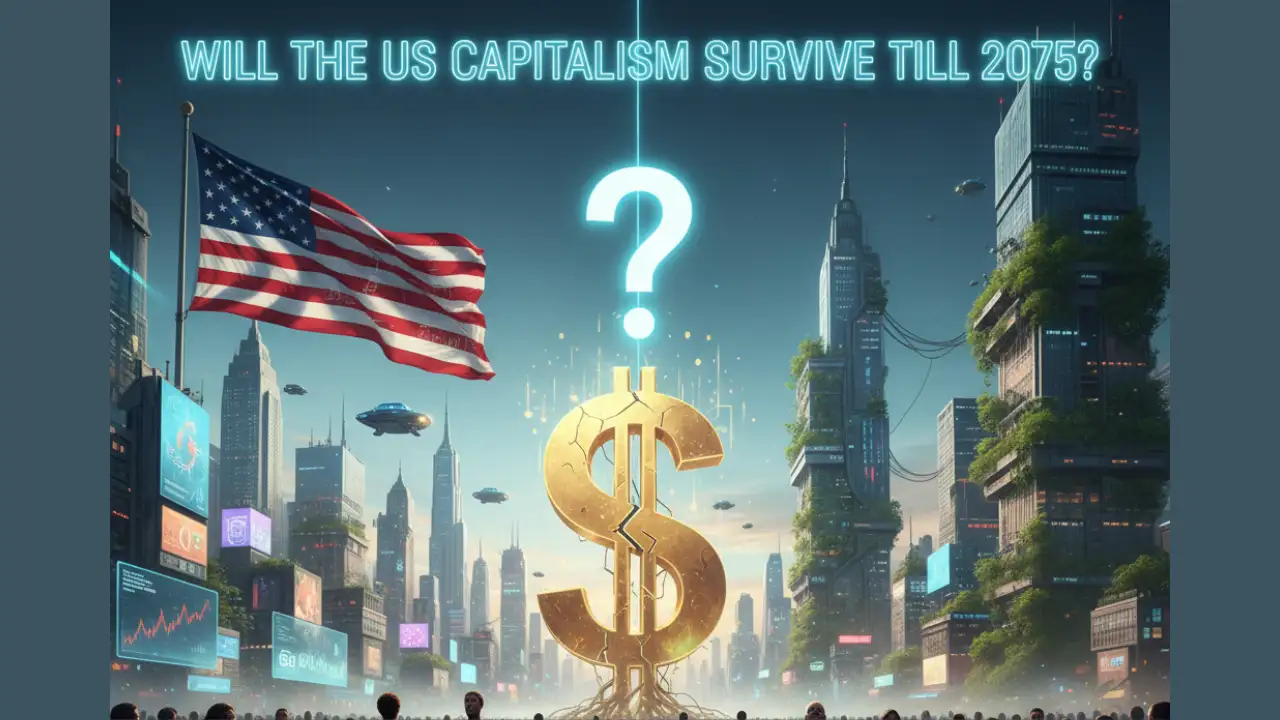By Samannay Biswas
Copyright timesnownews

Capitalism is the beating heart of the American experiment. It built railroads, birthed Silicon Valley, and created the world’s most powerful economy. Yet it has also fueled inequality, political division, and worker discontent. As the US approaches its 250th birthday, economists and historians are debating what American capitalism might look like by 2075. Will it still be the global model for prosperity, or will it break under the weight of inequality, climate change, and automation? To explore this, the Wall Street Journal asked seven leading thinkers, from MIT professors to Harvard historians, to share their long-term forecasts. Their answers reveal both danger and opportunity for the American economic engine. 1. Artificial Intelligence: Capitalism’s Wild Card Few forces will reshape capitalism as profoundly as artificial intelligence. According to Daron Acemoglu of MIT, the US risks building an economy that enriches a few tech giants while displacing millions of workers. “AI is not destiny,” Acemoglu argues. “The question is: will it be used to replace workers, or to empower them?” If the US channels AI toward augmenting human skills, say, teaching nurses, electricians, and teachers to work alongside smart systems, it could boost wages, expand opportunity, and lift productivity growth. But if it remains concentrated in Silicon Valley’s hands, Acemoglu warns, the result could be stagnation, social unrest, and runaway inequality. 2. The Administrative State Shrinks Jennifer Burns, a historian at Stanford, predicts that today’s sprawling federal apparatus, the so-called “administrative state”, will be forced to shrink. Rising fiscal deficits, global competition, and domestic politics may demand a leaner, faster, more innovative government. But Burns doesn’t see this as a simple retreat. Instead, she envisions public-private partnerships filling the gap. Tech leaders and entrepreneurs could increasingly shape state functions, turning government into a Silicon Valley-style operator focused on efficiency and innovation rather than bureaucracy. 3. Rebalancing Toward Real Value To Oren Cass, executive director of American Compass, US capitalism has drifted off course. It rewards financial speculation, offshoring, and monopolistic consolidation, while neglecting productive investment and family-supporting jobs. His prescription: a hard reset. That means tariffs, industrial policy, and capital controls to force companies to invest at home. In Cass’s vision, capitalism must return to producing real value, goods, skills, and communities, rather than chasing shareholder returns at any cost. “Markets are powerful, but they’re not moral,” he says. “We need capitalism that works for society, not the other way around.” 4. A Public-Private Capitalism Emerges Carola Frydman, professor at Northwestern’s Kellogg School of Management, foresees a new balance between government and business. This doesn’t mean heavy-handed socialism. Instead, she predicts: Stronger antitrust enforcement to curb Big Tech dominanceNew regulations tailored to the digital economyTargeted investments in critical sectors like clean energy, semiconductors, and defense The model might resemble “state capitalism” seen in Asia, but adapted to American traditions of free markets and entrepreneurship. 5. A Stronger Safety Net for Workers For R. Glenn Hubbard, former dean of Columbia Business School, the survival of capitalism depends on building a new social contract. He argues that capitalism has traditionally excelled at generating growth, but failed to shield workers from economic shocks. In the next 50 years, that must change. Expect new tools like: Wage insurance for displaced workersExpanded retraining programsCommunity-based safety nets to help towns hit by automation or trade shocks He also sees tax reform on the horizon, with the US adopting a value-added tax (VAT), common in Europe, as a replacement for inefficient tariffs and loophole-ridden corporate taxes. 6. Mankiw’s Six Predictions for 2075 Harvard economist N. Gregory Mankiw offers perhaps the boldest crystal-ball gazing. His six predictions: Average income will double, but wealth gaps will persist.Inequality will remain high, driven by technology and education gaps.A universal basic income may emerge as automation accelerates.Taxes will rise, with a VAT as the likely cornerstone.Workweeks will shorten as productivity frees up time.Protectionism will fade, replaced by renewed emphasis on efficiency and free trade. His conclusion: capitalism will adapt, but it won’t erase inequality, it will simply manage it better. 7. Capitalism Always Reinvents Itself Finally, historian Joel Mokyr reminds us that capitalism’s greatest strength has always been adaptability. From the Industrial Revolution to the digital age, capitalism has repeatedly faced existential crises. Each time, it has morphed and survived. Mokyr predicts the same will happen with aging populations, climate change, and environmental stress. He points to future industries: Robotic elder care for aging societiesClimate-resilient agricultureGreen energy ecosystems For Mokyr, capitalism’s resilience lies in its culture of innovation and entrepreneurship. As long as those forces remain alive in America, capitalism will endure. The experts disagree on almost everything, except one point: US capitalism in 2075 will not look like it does today. Whether shaped by AI-driven inequality, stronger worker protections, or deeper government-business partnerships, the system is headed for transformation. Capitalism has lasted because it adapts. But adaptation is not automatic, it requires political will, cultural resilience, and shared values. If America can summon those, it may once again reinvent capitalism for a new century.



